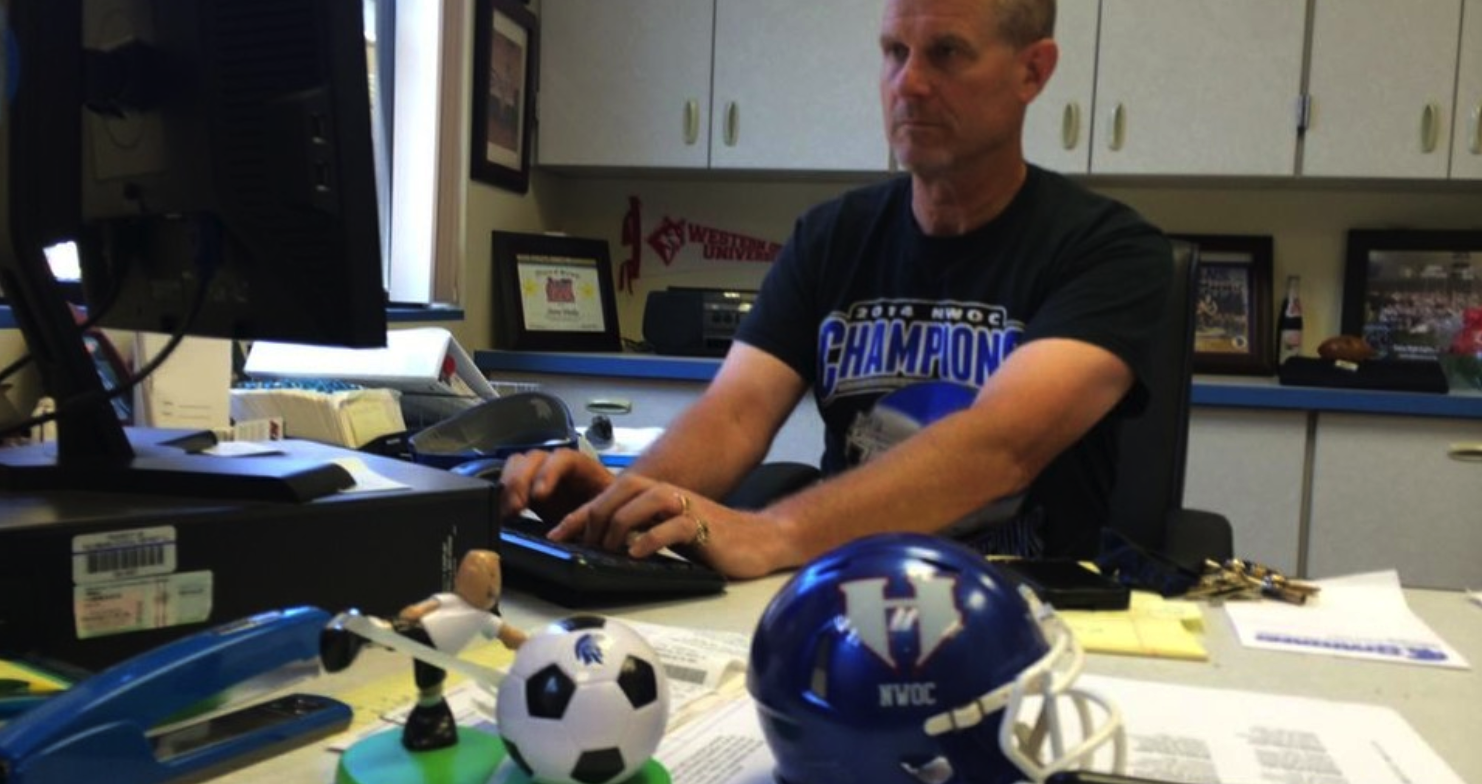High school athletic directors have their hands full with hiring coaches, scheduling, budget preparation, promotion, compliance and facility management. The job is never easy and it takes focus and consistent hard work to be successful. To understand how they handle the numerous duties with success I reached out to determine what are the keys to being a successful high school athletic director. What we found interviewing coaches, and not to my surprise, was a great response! This says a lot about the athletic director community - they want to help new and experienced coaches be better with these coaching tips!
Keys For High School Athletic Director
1. Communication
The athletic director needs to be skilled in multiple ways to be successful and one of the most significant skills required is communication skills. Chris Hobbs the Director of Athletics at The King's Academy in West Palm Beach says “successful athletic administrators are expert communicators”. Imagine being in charge of the logistics, fund raising, facility management, liabilities and educational experience of a department and then combine that with the intensity of competition within each sport at the school! Athletic Director Hobbs says it best that through all of the chaos “athletic directors need to communicate frequently, particularly to remind constituents about the mission of education-based athletics”. Being excellent communicators in verbal and written form is one of the skills it takes to be a successful athletic director.
2. Empathy and the Servant Mindset
Empathy may be the toughest skill for someone to master. Listening with empathy isn’t always easy. You have to train yourself to turn off your inner monologue and listen to what your staff is saying. It’s more than just waiting your turn to speak. Being empathetic leads to building stronger and lasting relationships with coaches, student’s and parents. How do you be more empathetic? Steve Denny from The Master’s Academy in Oviedo taps into C.S. Lewis says a great way to think and understand is to be in the “servant mindset; don’t think less of yourself, think of yourself less”. The servant mindset allows you to serve the deepest needs of the people you work with every day, which can help decrease stress, increase engagement and increase accountability.
3. Relationship Building
Outside of being proficient, organized and having attention to detail, the athletic director needs to be able to successfully establish and grow meaningful relationships with the coaches, students, parents, outside athletic directors, and official organizations, such as the FHSAA. It starts with the points I mentioned previously; communication, empathy, and the servant mindset. It really makes a difference when being fully involved in the athletic department, which means attending practices and games. Mike Malatesta, Athletic Director at Bishop Moore Catholic in Orlando understands that “AD’s need to attend at least one practice/game of each sport (more if you can) this let’s the kids know you are present and care and they remember that and they also take note if they only see you at football or basketball games”. Taking the time to put yourself in front of each sport, every athlete, parent, etc. shows your passion and that you care. Parlaying your passion with effective communication and understanding with empathy can be a successful recipe for developing and maintaining meaningful relationships.

4. Don’t Take it Personal
When you’re in any sports capacity, the intensity of the game creates a wide range of emotions. Ernest Robertson, Athletic Director from Palmer Trinity School in Miami, says it best “Sports are emotional so you can’t take things personally”. When teams lose it can be tough and can be very hard for anyone to think clearly after a tough loss, but the athletic director needs to remain focused, lead and make decisions with logic. This requires self-awareness and to understand your emotions at the present time which is far from easy when dealing with athletes, coaches and parents.
5. Show Some Vulnerability
You’re the leader of the department as the athletic director, but that doesn’t mean you know everything, no matter how long you have been in the position. Wayne Stofsky, the Director of Athletics at David Posnack Jewish Day School in Davie, offers great advice “AD’s should ask one another for advice. Chances are one of your colleagues has been through an issue you might be encountering and most of the time they are more than willing to share insights”. What better way to connect to your peers by asking for their advice and thoughts on an issue you may be having.
6. Promote Success
Part of being a successful athletic director requires promoting the mission and accomplishments of the student-athletes, school and coaches. Chris Hobbs put this in great perspective on why this is very important,: “ Interscholastic athletics are under constant scrutiny. The ultra-connected community that schools are set in demands a narrative on their athletic department and if a narrative is not provided, the community will fill in the void and often to the detriment of the athletic department”. It’s natural to want to share your program's success and being the athletic director with the relationships you built make it easy to speak with the local community. Mike Graham, Athletic Director at Eagles View Academy in Jacksonville, offers help to further understand promoting the success by saying “Athletic programs many times are the most visible to the public and to our parents. Because of this we want ours to be an example of doing things correctly”. Share your success because you, the coaches and the athletes all worked hard!
What’s Next?
Being an excellent communicator, understanding with empathy, having the servant mindset, building meaningful relationships, not taking everything personally, seeking help and promoting are just some of the keys to being a successful athletic director. As an athletic director you do have resources available to help you succeed such as your state high school interscholastic administrators association (Florida - Florida Interscholastic Athletic Administrators Association) and the NIAA (National Interscholastic Athletic Administrators Association) which offers Leadership Training Resources (LTC).





.png?width=110&name=Listing%20Image-basketball%20ladder%20drill%20%20(350%20x%20350%20px).png)














